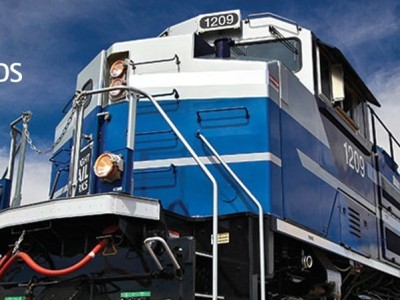ATA applauds ratification of USMCA trade deal
Jan 16, 2020Today, the American Trucking Associations commended Congress and the Trump administration for ratification of the U.S. - Mexico - Canada Agreement, setting the stage for increased free, fair and equitable trade between our three countries.
“Trade is central to the trucking industry – 76% of all surface freight between the U.S. and our nearest neighbors moves by truck – so the newly ratified USMCA will be a boon to our economy and our industry,” said ATA President and CEO Chris Spear. “This agreement will boost both U.S. exports and gross domestic product, meaning more truck movements and delivering measurable returns for our industry.”
USMCA is projected to increase annual U.S. exports to Canada and Mexico by a combined $33 billion above the current NAFTA baseline. The agreement is also expected to increase U.S. GDP by $68 billion, stimulating broad sectors of the economy that the trucking industry services, like agriculture and manufacturing.
“NAFTA was the oldest of our 17 trade agreements and due for the sorts of modernization that USMCA made,” said ATA Chief Economist Senior Vice President of International Trade Policy and Cross-Border Operations Bob Costello. “With this new trade agreement in place, we can expect to see increases in exports to Canada and Mexico and a measurable increase in our gross domestic product in the years ahead. Because trucks move 70% of all freight in the U.S., implementation of USMCA will have direct benefits to the trucking industry.”
In 2018, trucks moved more than $770 billion worth of goods between the U.S., Canada and Mexico, and transnational trade between the three countries supported roughly 90,000 U.S. jobs in the trucking industry. Those figures should only increase as USMCA is implemented.
"But more than that, it is proof positive that even in this increasingly polarized political environment, our elected leaders can still get big things done for the good of our country,” Spear said. “President Trump, Speaker Pelosi and Leader McConnell all deserve credit for setting aside partisanship and moving this important modernization of our trade policy forward.
“We hope that this shared victory will pave the way for more bipartisan solutions on the critical issues facing our country, such as the infrastructure crisis and the skyrocketing costs it’s imposing on the American people.”
Similar Stories

AAR Reports Rail Traffic for the week ending December 28, 2024
View Article
Women In Trucking Call for Nominations: 2025 Distinguished Woman in Logistics Award
View Article
Realterm expands Minnesota presence with acquisition of an industrial outdoor storage fleet maintenance facility in Minneapolis
View Article
Avison Young facilitates multi-parcel land sale near Northeast Georgia Inland Port for two new industrial buildings
View Article
Women In Trucking Association announces its January 2025 Member of the Month
View ArticleFreightWise and Estes team up to save shippers money on LTL freight
Transportation technology and services provider FreightWise will now offer highly competitive Less Than Truckload (LTL) pricing with Estes. Starting immediately, these rates will be available to FreightWise and Kuebix transportation…
View ArticleGet the most up-to-date trending news!
SubscribeIndustry updates and weekly newsletter direct to your inbox!




